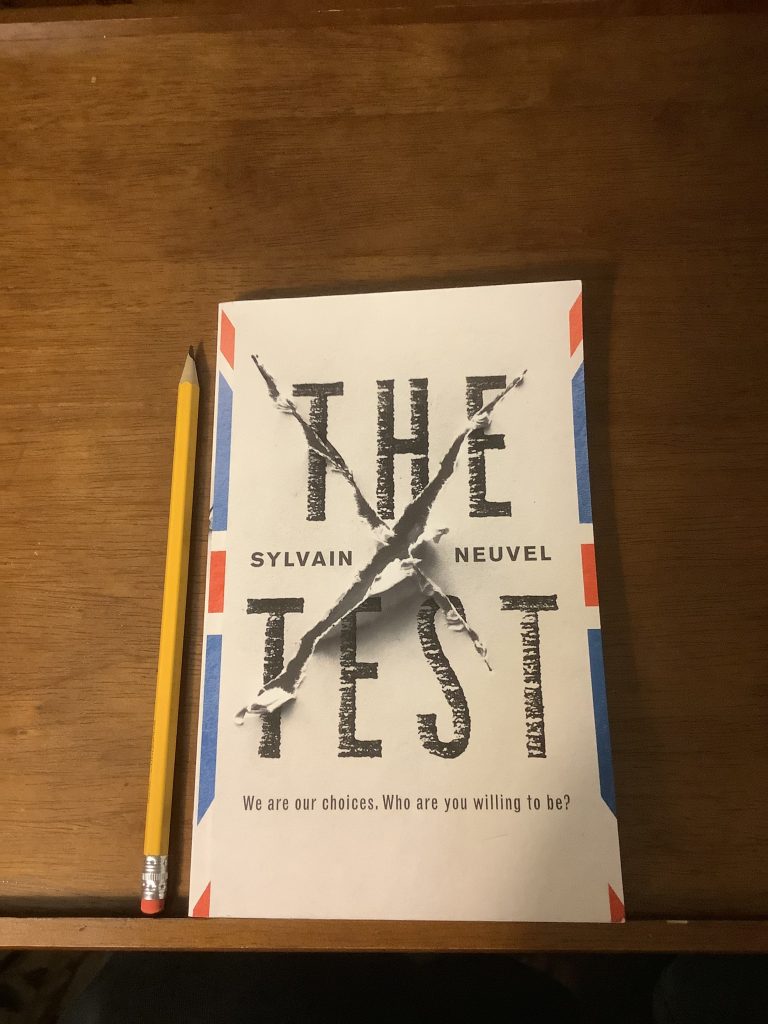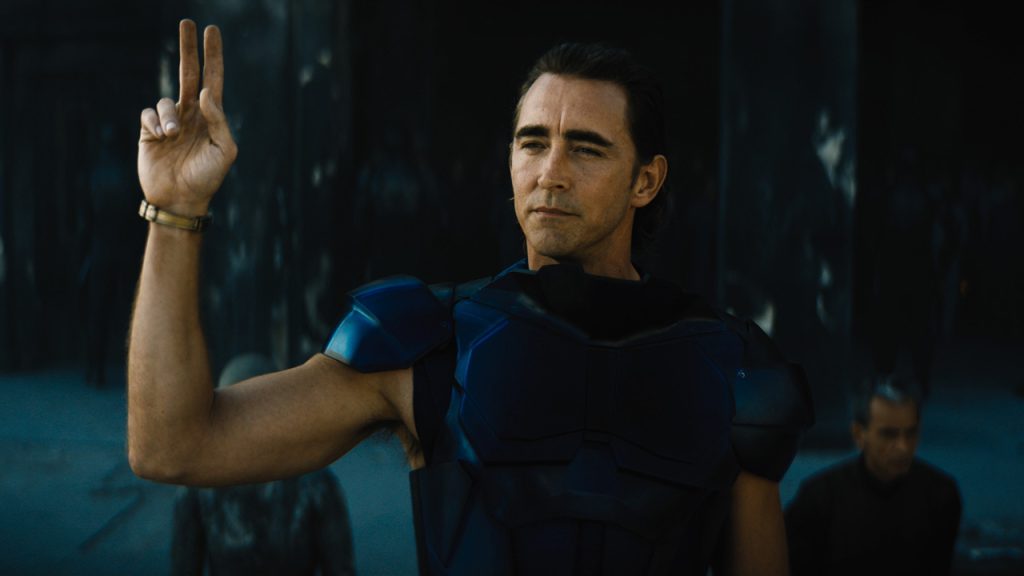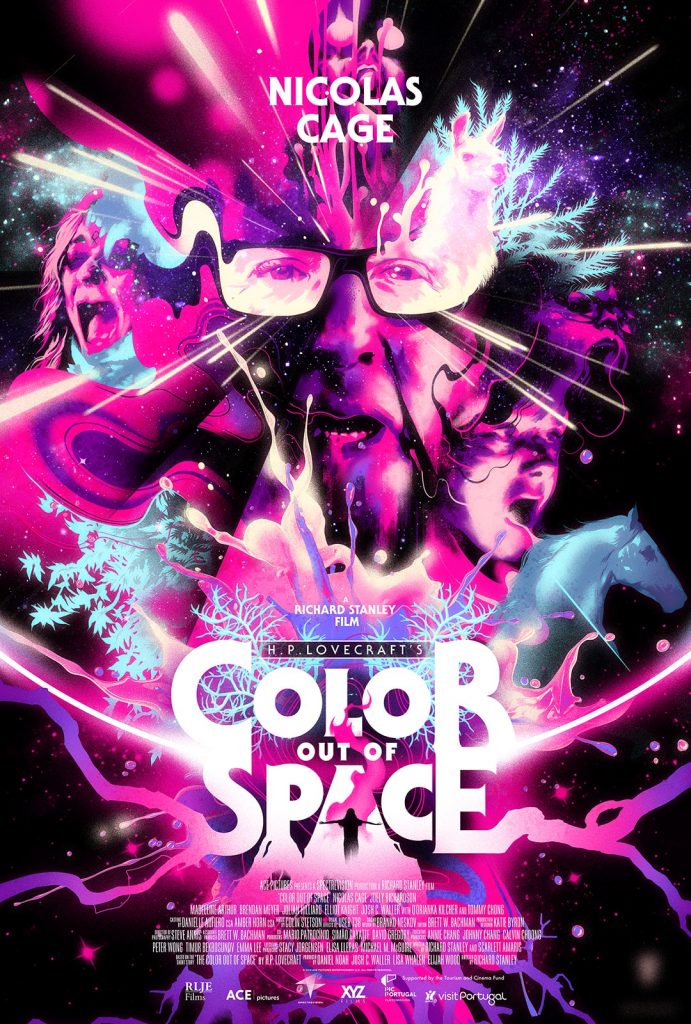Color out of Space
By Magdalena Nitchi
Directed by Richard Stanley, this 2019 science fiction/horror film is an adaptation of a short story by H. P. Lovecraft. The basic plot is straightforward: after a meteorite lands in their front yard, the hapless Gardener family find themselves fighting for survival against a mysterious alien.
However, this classic invasion story sets itself apart through Lovecraft’s favoured form of supernatural horror: the alien is an eldritch being whose power stretches beyond human comprehension. From the moment the meteorite lands, it begins to fuse with the land, infecting the well water and transforming every living organism around it.
The whole cast is outstanding, but Nathan Gardener (Nicolas Cage) and Lavinia Gardener (Madeleine Arthur) are particularly compelling. I really felt the changes in their tone and demeanour, becoming detached from reality and more aggressive, as the alien slowly corrupted their minds. I also enjoyed how the film opens and closes with Ward, a hydrologist coming to inspect the land for a dam, a great nod to the point-of-view character in Lovecraft’s original work.
The film is very moody and atmospheric, and I love Stanley’s use of colour. In the short story the “colour” emitted by the meteorite is outside of the spectrum of human vision, and cannot be described. I thought this would be quite challenging to render in a film, but the bright, pulsing purple glow that suffuses the alien scenes feels right. I got the impression that there was something more lurking there, and the camera could not fully capture it.
Color Out of Space is not only an excellent adaptation, but a very good film in its own right. It is not for the faint of heart, though. There is murder, self harm, gore, animal death, various unsettling eldritch abominations, and many scenes with flashing lights and distorted audio. However, if you are a horror fan, then I recommend you check it out on Netflix.
The Test
Par Magdalena Nitchi

The Test, publié en 2017 chez Tor, est une nouvelle de science-fiction écrite par Sylvain Neuvel. Sombre et incroyablement terrifiant, l’histoire se concentre sur un réfugié iranien et sur le déraillement spectaculaire de son examen de citoyenneté britannique. Située dans un avenir technologiquement plus avancé que la nôtre sans toutefois paraître lointain, l’intrigue de l’histoire se fonde sur de nombreux problèmes contemporains tels que l’immigration, le racisme et le terrorisme.
Par son courage et sa dédication, Idir, le protagoniste, a capturé mon cœur dès les premières pages. Malgré les événements difficiles auxquels il a été précédemment confronté, Idir fait de son mieux pour être courtois avec le personnel au centre d’examination, qu’importe la froideur avec laquelle on le traite. La narration à la première personne sert bien l’histoire, nous plongeant dans la psychologie d’Idir. L’affection et la chaleur dans la voix d’Idir lorsqu’il parle de sa famille rend ce dernier un personnage auquel il est facile pour le lecteur de s’y attacher.
La journée dans laquelle se déroule l’histoire est particulièrement stressante pour Idir. S’il échoue à l’examen de sa citoyenneté, lui et toute sa famille seront alors expulsés de l’Angleterre, et n’auront d’autre choix que de retourner au pays duquel ils ont fui. Le récit prend une tournure pour le pire quand un événement inattendu fait totalement dérailler Idir en plein examen. Sans rien dévoiler, je peux vous dire qu’à partir du troisième chapitre, les rebondissements ne cessent que de s’empiler.
Le thème abordé dans l’histoire, que les humains sont fondamentalement des êtres bons et dévoués envers les autres, rendent les événements horribles qui se déroulent encore plus difficiles à supporter. Neuvel accorde beaucoup d’attention aux personnages, leur donnant suffisamment de détails pour les rendre humains sans perdre de vue son récit qui s’avance à un rythme trépidant. Chaque chapitre marque une étape importante, dépeignant un événement décisif, évènement qui changera la vie d’Idir pour toujours.
The Test est une excellente nouvelle, et plaira certainement aux fans de Black Mirror et d’autres créations similaires. Comme toutes les bonnes nouvelles de science-fiction, cette dernière est percutante, intense et bourrée de commentaires pointus sur l’état du monde qui vous feront longuement réfléchir même après la lecture.
Foundation
By Catherine Hall

The Apple TV+ adaptation of Isaac Asimov’s seminal sci-fi novel Foundation is a visual spectacle that takes its time to unfold. The sprawling space opera takes place thousands of years in the future and follows a large cast of characters across multiple galaxies and centuries.
In the first episode, viewers are introduced to mathematician Hari Seldon (Jared Harris), his assistant Raych (Alfred Enoch), and his new pupil Gaal Dornick (Lou Llobell). Seldon has predicted the decline of the Galactic Empire, but his statements are considered heretical, so he and his team are banished to a remote corner of the galaxy. Initially, most of the characters are hard to grasp. I didn’t know who to trust, and in subsequent episodes, my expectations on that front were constantly overturned.
The show’s massive scope is impressive, but initially left me feeling utterly confused. So many characters are introduced in seemingly unrelated subplots that for the entire first episode, I was asking myself, who is this? Where is this? Why is this important? Still, I was in awe of Lee Pace’s magnetic performance, so I persisted—and I was not disappointed.
Lee Pace portrays Brother Day, one of three brothers who are genetic copies of an ancient emperor. At first the three brothers seem identical, apart from their age. Yet, as the show progresses, Brother Dawn (Cassian Bilton) begins to question his individuality, infusing humanity in what had been a cold and otherworldly figure.
Ultimately, although it is a show of epic proportions, Foundation excels at portraying sympathetic but morally ambiguous characters. It also excels at presenting existential questions about what it means to be human and how technology can disrupt our assumptions on the matter. The show offers no clear answers, but leaves these issues to simmer in viewers’ minds. As such, it is perfect for those who riddle out all the finer details through multiple viewings.

